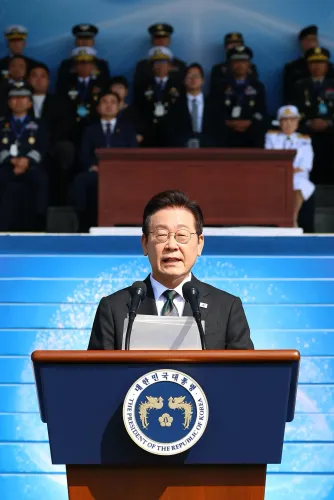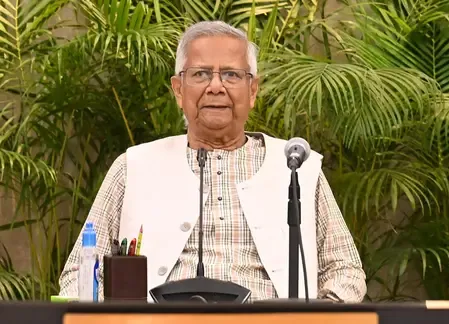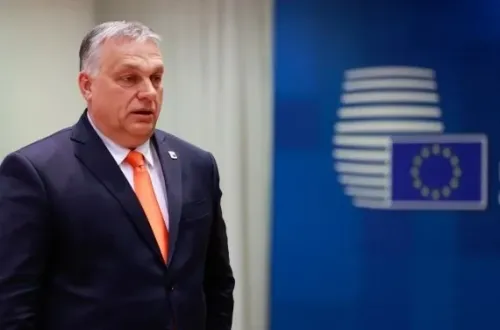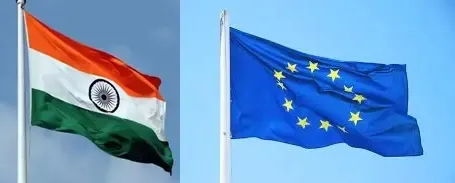Is Khawaja Asif Navigating Pakistan's Dilemma Between the Eagle and the Dragon?
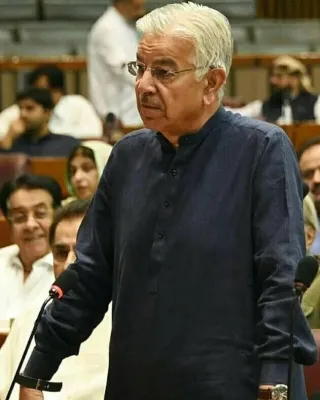
Synopsis
Key Takeaways
- Khawaja Asif admits closer ties with China.
- Pakistan is navigating economic instability.
- US-Pakistan relations are under scrutiny amid rising tensions.
- Beijing's role in Pakistan's defense is increasing.
- Strategic decisions will shape Pakistan's future.
New Delhi, Sep 30 (NationPress) Pakistan's Defence Minister Khawaja Asif has candidly acknowledged Islamabad's closer alignment with Beijing than with Washington, asserting that the two will perpetually be in conflict. This revelation arises at a moment when his leaders are attempting to cultivate a relationship with the White House.
In a revealing exchange with British-American journalist Mehdi Hasan, Asif conceded that "defence cooperation is increasing with China" due to the "unreliability of other sources, such as the US." This discussion took place while he was in New York for the United Nations General Assembly (UNGA) session. Ironically, Prime Minister Shehbaz Sharif was simultaneously attending a meeting with US President Donald Trump in Washington.
Asif's defense of Pakistan's distinct governance model, which intertwines political and military leadership, is further complicated by the timing of a White House meeting attended by Sharif and Gen Asim Munir on September 25. Their 80-minute discussion was preceded by a 30-minute wait while Trump managed other obligations.
As the Defence Minister, Asif highlighted Pakistan's "time-tested relationship" with China dating back to the 1950s, emphasizing Beijing's reliability as a supplier of "arms and other necessities." His assertion that Pakistan's "strategic future can’t be with both (the US and China)" raises critical questions.
Is Pakistan genuinely being "flirtatious" with the US, as Asif suggested during the interview, without any clear agenda? Or was the White House summoning his leaders for an undisclosed purpose?
Regardless, Pakistan is navigating severe economic turmoil and unrest in tribal regions while caught in the diplomatic crossfire between the US and China.
Amid rising domestic challenges, the Sharif administration, like its predecessors, has sought to strengthen ties with Washington, particularly in security, while simultaneously renewing its partnership with China, with which it shares a border.
Asif's previous criticisms of the "Western world" for their involvement in covert operations against the Soviet Union during the Afghan conflict may indicate a shift towards China.
While recognizing US support in times past, such as the deployment of the Seventh Fleet during the Bangladesh Liberation War in 1971, he overlooks the rapid military-diplomatic maneuvers by India and the former USSR that undermined that support.
Moreover, he has disregarded China's strong reaction to the deaths of its citizens involved in infrastructure projects in Pakistan, which has led to indications that Beijing might withdraw funding from significant connectivity initiatives.
In a prior interview, Asif remarked on how the US abandoned Pakistan after the first Afghan War against the Soviet occupation, stating, "we were left high and dry." He lamented that Pakistan continues to bear the burden of consequences from Afghanistan's tumultuous history.
As Pakistan's economy falters, the West has facilitated aid through global organizations, while China has been heavily investing, creating a scenario where Islamabad risks falling into a debt trap.
As Asif previously stated, "All we have is a geographical location, which is strategic, attracting not always favorable elements that can render us more vulnerable."

